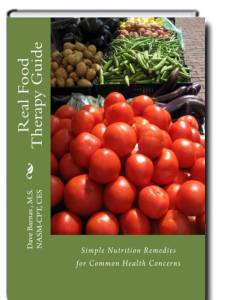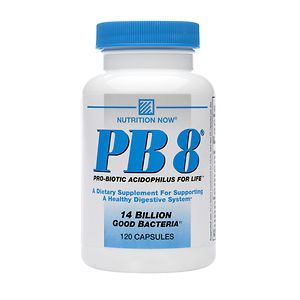 Once upon a time, Hippocrates said,
Once upon a time, Hippocrates said,
“Let food be thy medicine and medicine be thy food.”
And here we are, hundreds of years later watching research catch up with his wisdom.
So what kind of medicine is food? Is food really a mood adjuster? A study by British and American researchers found that people who ate more than two servings of fruits and vegetables daily reported higher levels of happiness than those who ate less. Moreover, the more produce you eat, the more your mood can improve. In fact, in this study, people who at 7 to 8 servings of fruit and vegetables a day were happiest of all.
Without question, food affects mood and the more fruits and vegetables you consume the better. Certain foods in the Real Food Therapy Guide that are shown to be helpful to foster mood improvement include brown rice, cucumber, apples, and cabbage.
Switching gears, while it’s good to strive for the natural produce, it’s also important to understand how other foods can be fueling depression. Perhaps more importantly is how certain foods affect inflammation, which is associated with depression.
In fact, according to some doctors, research has demonstrated that depression is frequently associated with gastrointestinal inflammations and autoimmune diseases as well as with other ailments in which chronic low-grade inflammation is a significant contributing factor.
As understandings of inflammation and its relationship with depression grow, some are beginning to wonder if the primary cause of inflammation may be the dysfunction of the “gut-brain axis.”
According to a study reprinted on the website Green Med Info:
“… [A]n increasing number of clinical studies have shown that treating gastrointestinal inflammations with probiotics, vitamin B, D and omega 3 fatty acids, through attenuating proinflammatory stimuli to brain, may also improve depression symptoms and quality of life. All these findings justify an assumption that treating gastrointestinal inflammations may improve the efficacy of the currently used treatment modalities of depression and related diseases.”
Further, since the functioning of our gut bacteria play a significant role in our overall health and are closely related to our diets, certain foods could be attacking our bodily systems without us even being aware of it. For example, processed foods and sweetened drinks, when consumed in high amounts, can negatively impact our gut bacteria because processed foods harm the healthy microflora. In addition, sugars of all kinds feed bad bacteria and yeast, as well as promote systemic inflammation.
So What’s the Best Route to Boost Your Mood with Food from Your Gut?
1. Consider brown rice, cucumber, apples, cabbage and other recommendations in the Real Food Therapy Guide that are not pasteurized because pasteurization destroys healthy bacteria.
2. Consume omega-3 fats: Found in vegetable oils and fish oils, these are commonly recommended for mood boosting purposes. I personally prefer Krill Oil, which provides a great combination of healthy omega-3 fats. I provide reasons why Krill Oil might be better than Fish Oil.

3. Look into Probiotics While getting real foods to support your mood is always a wise choice, it does not hurt to consider probiotics, which are quickly becoming a very popular supplement along with vitamin D. I have used several different brands and would recommend PB 8 because it offers a much larger array of healthy bacteria than most probiotic products out there.
Probiotics are known to have a direct effect on brain chemistry, transmitting mood- and behavior-regulating signals to your brain via the vagus nerve, which is yet another reason why your intestinal health can have such a profound influence on your mental health, and vice versa. For more info on probiotics, visit this page.
Two other important factors to address gastrointestinal inflammation that may also help relieve depression are:
4. Get Your Vitamin D
Studies show that people with the lowest levels of vitamin D were 11 times more prone to be depressed than those who had normal levels. The recommendation for getting vitamin D with sunlight is usually 20 minutes of direct sunlight exposure to the face and arms a day. But, in the winter and for those who prefer to stay out of the sun for concerns with skin cancer, supplementation is more preferable.
In fact, one of my clients asked me today about vitamin D amounts and I referenced my previous article about it. If you take a vitamin D supplement, you should have it monitored because like any other fat soluble vitamin the body stores it and too much is not a good thing. At the same time, large studies with over a 100,000 subjects described by Life Extension have shown that up to 5,000 IU are safe, even though that number seems high to most folks using vitamin D supplements.



